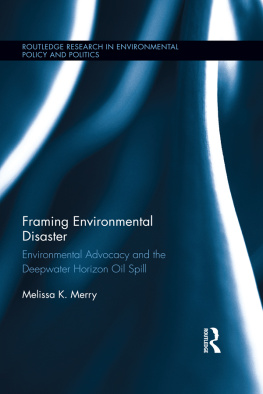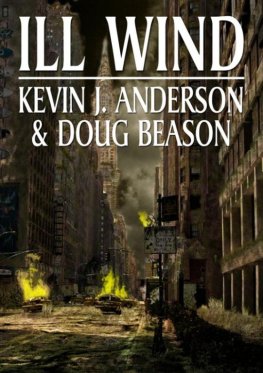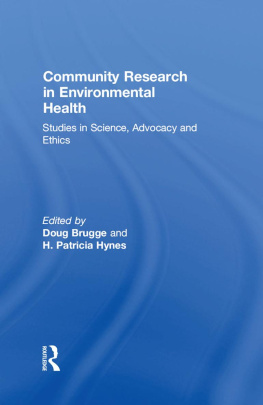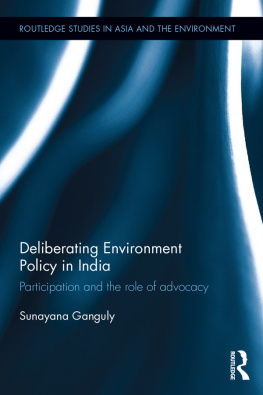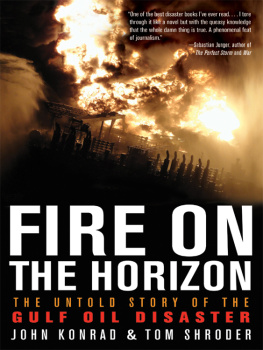Melissa K. Merry offers a fresh examination in Framing Environmental Disaster: Environmental Advocacy and the Deepwater Horizon Oil Spill , using content analysis that includes the innovative use of blogs, emails, news stories and Congressional Testimonies. She discusses how interest groups use events and crises to leverage their cause. Scholars, practitioners and students will benefit from her contribution to the field disaster management and public policy.
Mary D. Bruce, Governors State University
Melissa Merrys study of rhetorical strategies used by environmental groups during the Deepwater Horizon is a marker in the systematic study of the framing of arguments in politics. The study will become a model of how to study political rhetoric systematically outside of the confines of the political psychology laboratory. It allows a much firmer analysis of the role of blame attribution in politics.
Bryan D. Jones, University of Texas-Austin
Framing Environmental Disaster
Environmental Advocacy and the Deepwater Horizon Oil Spill
The blowout of the Deepwater Horizon and subsequent underground oil spill in the Gulf of Mexico in 2010 is considered by many to be the worst environmental disaster in U.S. history. Interest groups, public officials, and media organizations have spent considerable time documenting the economic and ecological impacts of this spill, as well as the causes of the spill, ostensibly to prevent future disasters of this magnitude. However, rather than an unbiased search for answers, such investigations involve strategic efforts by a variety of political actors to define the spill and its causes in ways that lead to their preferred policy solutions.
Framing Environmental Disaster evaluates the causal stories that environmental groups tell about the spill and develops theoretical propositions about the role of such stories in the policy process. Which actors do groups hold responsible, and how do groups use blame attributions to advance their policy agendas? Constructing a creative methodological approach that includes content analysis drawn from blog posts, emails, press releases, and testimony before Congress and insights and quotations drawn from interviews with environmental group representatives, Melissa K. Merry argues that interest groups construct causal explanations long before investigations of policy problems are complete, and use focusing events to cast blame for a wide range of harms not directly tied to the events themselves. In doing so, groups seek to take full advantage of windows of opportunity resulting from crises.
An indispensable resource for scholars of public policy and environmental politics and policy, this book sheds new light on the implications of the Gulf disaster for energy politics and policies, while advancing scholarly understandings of the role of framing and causal attribution in the policy process.
Melissa K. Merry is an assistant professor of political science at the University of Louisville. Her research interests include environmental politics and policy, interest groups, and political communication. She has authored articles appearing in American Politics Research, Journal of Information Technology and Politics, and Environmental Politics, among other journals.
Routledge Research in Environmental Policy and Politics
1 Green vs. Green
The Political, Legal, and Administrative Pitfalls Facing Green Energy Production
Ryan M. Yonk, Randy T. Simmons, and Brian C. Steed
2 The Lilliputians of Environmental Regulation
The Perspective of State Regulators
Michelle C. Pautz and Sara R. Rinfret
3 Globalization, Political Institutions and the Environment in Developing Countries
Gabriele Spilker
4 Comparative Perspectives on Environmental Politics and Issues
Edited by Robert Dibie
5 Framing Environmental Disaster
Environmental Advocacy and the Deepwater Horizon Oil Spill
Melissa K. Merry
First published 2014
by Routledge
711 Third Avenue, New York, NY 10017
and by Routledge
2 Park Square, Milton Park, Abingdon, Oxon OX14 4RN
Routledge is an imprint of the Taylor & Francis Group, an informa business
2014 Taylor & Francis
The right of Melissa K. Merry to be identified as author of this work has been asserted by her in accordance with sections 77 and 78 of the Copyright, Designs and Patents Act 1988.
All rights reserved. No part of this book may be reprinted or reproduced or utilized in any form or by any electronic, mechanical, or other means, now known or hereafter invented, including photocopying and recording, or in any information storage or retrieval system, without permission in writing from the publishers.
Trademark Notice: Product or corporate names may be trademarks or registered trademarks, and are used only for identification and explanation without intent to infringe.
Library of Congress Cataloging-in-Publication Data
Merry, Melissa K.
Framing environmental disaster : environmental advocacy and the
Deepwater Horizon oil spill / by Melissa K. Merry.
pages cm. (Routledge research in environmental policy and
politics ; 5)
Includes bibliographical references and index.
1. Environmental policyUnited States. 2. BP Deepwater
Horizon Explosion and Oil Spill, 2010. 3. Environmental disasters
InvestigationGovernment policyUnited States. I. Title.
GE180.M47 2013
363.738280916364dc23
2013031846
ISBN: 978-0-415-53728-5 (hbk)
ISBN: 978-0-203-11021-8 (ebk)
Typeset in Sabon
by Apex CoVantage, LLC
In April 2010 I was finishing teaching my spring semester courses at the University of Louisville and, having recently wrapped up one research project, was looking for a new research topic and set of questions to pursue. When the Deepwater Horizon blowout occurred, my initial reactionlike that of most peoplewas shock and dismay. When oil starting spilling from the underground well and the magnitude of the disaster became clear, I sensed that I needed to document and study the disaster in some way (though at the time I was not sure how). I began collecting communications from national environmental organizationstheir blog posts, press releases, and emails. I saved them as Word documents on my computer as the disaster was unfoldingstill unsure how long the spill would last or what questions I would answer by examining these documents. Months later, I returned to these communications and started reading through them, eventually developing the concept I call blame-casting to describe how interest groups immediately assign blame in the aftermath of events such as this one.
Fast forward to December 2012. Again, I was finishing teaching my fall courses and enjoying spending some time on what had turned into a book project on blame attribution following disasters. One afternoon, I was checking the news online while taking a break from work and happened to read, with horror, news about the mass shooting at Sandy Hook Elementary School in Newtown, Connecticut. The rest of the day I was gutwrenched, unable to do anything except watch my Twitter feed and check various news websites, hoping for any kind of good news, which, of course, never came. In the days and weeks that followed, the nation searched for meaning in the tragedy, and conversations inevitably turned to causation. People asked, why did this happen, and how can we prevent another mass shooting?

